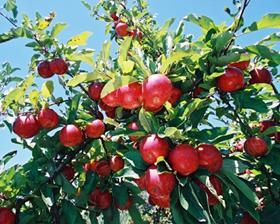
The New Zealand apple industry is celebrating the release of a final appeal report from the World Trade Organisation (WTO), which has ruled Australian restrictions on New Zealand apple exports were unscientific and in breach of international trade rules.
The ruling looks to be the last in a dispute that dates back to 1921 when Australia banned the import of New Zealand apples to protect against the spread of fireblight.
The appeal decision has upheld the WTO’s original finding that all 16 measures Australia imposed on access for New Zealand apples are inconsistent with Australia’s obligations under international law.
Pipfruit New Zealand CEO Peter Beaven has welcomed the decision. saying it vindicates the country’s decision to take the matter to a disputes hearing. “Our aim has always been to achieve commercially meaningful access to Australia and we were always confident that our arguments were supported by strong science,” Mr Beaven stated. “Now we ask the Australian government to get on with the implementation phase without further delay.”
Talking to Fruitnet.com, Mr Beavan said Australia must now rewrite its import risk analysis (IRA) for apples to reflect the findings of the WTO ruling. It was also required to give a timeframe outlining the major steps in drafting and implementing the new protocol, he added.
“If we don’t like the timeframe we can lodge a complaint and the WTO will determine a reasonable implementation period,” he said. “It’s now going to be very difficult for Australia to stall or have any political interference.”
Mr Beaven said it would likely be another year before the protocol was in place and apples could be sent to Australia.
He predicted the Australian market would be significant for New Zealand growers and exports would be made up largely of varieties such as Pacific Rose, Pacific Queen, Jazz and Braeburn, which are not readily available there. “We think we can grow the market up to 500,000 cartons over time – this would represent about 3-5 per cent of exports, and make the market worth up to NZ$30m,” he said. “It is an extension of our domestic market from 4m people to 24m people.”
He was hopeful industry bodies from the two countries could work together to grow the market in Australia, pointing out that apple consumption is low in Australia compared to consumption levels in countries like New Zealand and Germany.



